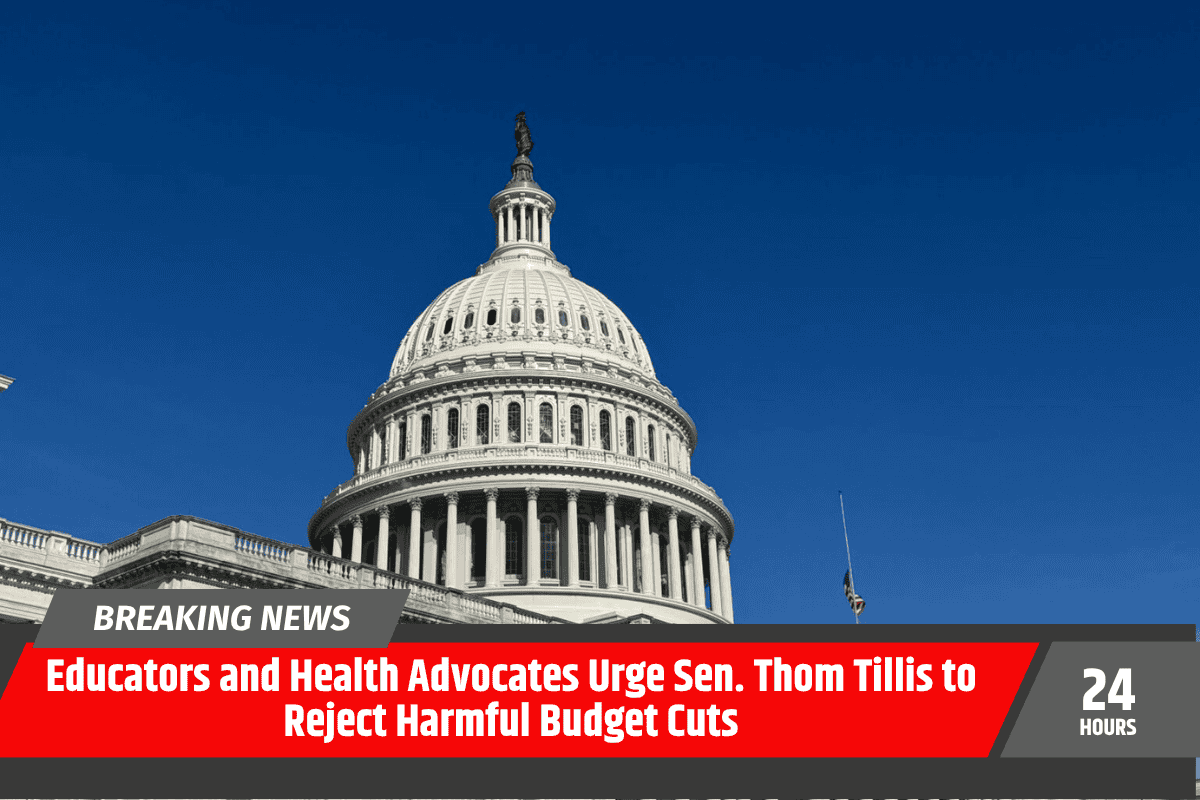A group of educators and health advocates recently gathered to express their concerns about the Republican-led budget reconciliation package and its potential harm to rural North Carolina.
The event, organized by the progressive group Down Home North Carolina, aimed to urge Senator Thom Tillis (R-N.C.) to reconsider supporting the proposed bill, which could significantly impact rural education and healthcare.
Impact on Rural Education and Healthcare
The House version of the budget reconciliation bill, passed in May, proposes drastic cuts to Medicaid funding by nearly $900 billion and the Supplemental Nutrition Assistance Program (SNAP) by $295 billion over the next decade.
According to the Congressional Budget Office, these cuts could hurt the most vulnerable in North Carolina, especially in rural areas.
The proposed changes to Medicaid funding could also threaten the state’s Medicaid expansion, which depends on federal matching funds to remain active.
Kim Morrison, the former superintendent of Mount Airy City Schools, emphasized the importance of federal support in maintaining vital programs for children and families.
She stated, “We are a wealthy community as America, and we can take care of those that are less fortunate than us by giving free meals to them and free support for their health.”
These programs not only help children in need but also support local economies and public services like schools, hospitals, and grocery stores.
The Risk to Rural North Carolina
Morrison further explained that rural North Carolina would be among the hardest-hit regions if the budget cuts are enacted. Many rural communities rely heavily on federal funding for educational and healthcare programs.
She pointed out that programs such as Mount Airy’s student-run Blue Bear Cafe and Blue Bear Bus, which help provide summer education, depend on such funding. Cuts to these programs would harm students and families who rely on them.
Shanna Peele, a special education teacher from Buncombe County, echoed these concerns, noting that many students with disabilities rely on Medicaid for essential therapies.
She emphasized that services like occupational therapy for a young child or physical therapy for a student recovering from an injury are not luxuries—they are necessities for these students’ development.
Economic Consequences for Local Communities
In Johnston County, Franky Echols, an organizer with Public Schools Strong, warned that cuts to education would directly impact the local economy. As the largest employer in the county, the school system depends on stable funding.
Should the proposed bill pass, many jobs could be lost, making the economic strain even worse for rural areas already facing challenges.
Sen. Thom Tillis’s Response to Concerns
Despite the urgent concerns expressed by constituents, Senator Tillis has not directly addressed the issues raised by educators and health advocates.
Many of them, including Rachel Phipps, a substitute teacher with chronic illnesses, said they had not received clear responses from Tillis’s office.
Phipps shared her frustration, saying that the answers she received from the senator’s aides were vague and unsatisfactory. “We are not getting direct answers at all,” she said.
In a commentary for The Hill, Tillis defended the reconciliation package, calling it “the most ambitious welfare reform in a generation.”
He praised the proposal for imposing work requirements on able-bodied adults receiving benefits, while also stressing the importance of cracking down on waste, fraud, and abuse.
However, critics like Todd Warren from Down Home North Carolina argue that these cuts will harm real people, especially those who rely on Medicaid and food assistance to survive.
Warren called out the focus on waste, fraud, and abuse as a diversion from the real issue—the loss of vital services for vulnerable populations.
The Future of the Budget Package
The Senate is expected to vote on the budget reconciliation package soon, with a vote anticipated by the end of the week. If approved, the bill will move to the House for a final vote before heading to President Trump’s desk for approval.
As it stands, many rural communities in North Carolina and beyond are watching closely, hoping their voices are heard before the package is passed.










